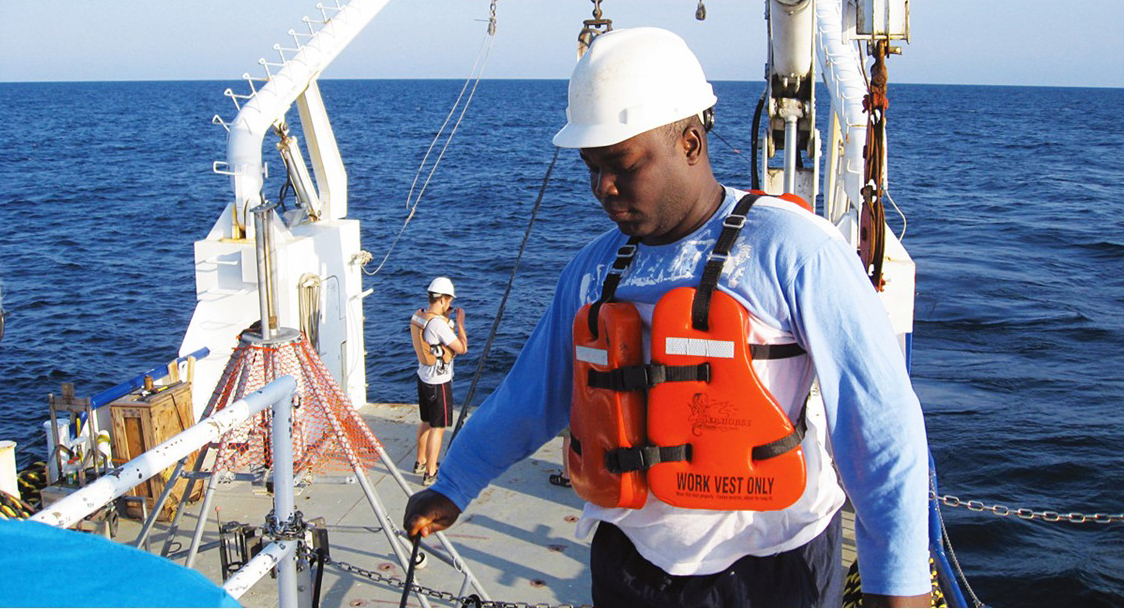NGI Faculty Member Ebenezer Nyadjro Discusses Ocean Salinity and Climate Change
March 31, 2022
Ebenezer Nyadjro
Job: Associate professor of research, NOAA Northern Gulf Institute, Mississippi State University
Degree: Ph.D., Marine Science, 2012
Focus: Ocean salinity
Why it matters: Global wam1ing is affecting the saltiness of the ocean, which could affect marine fisheries, plastic pollution and ocean circulation.
When Ebenezer Nyadjro talks about his research, he sprinkles in a quick lesson on climate change. Global warming increases evaporation on the ocean's surface, which makes for saltier water. But what goes up - evaporative moisture - must come down, and heavy rainfall makes other pa1is of the ocean less salty. Fluctuating salinity changes overall seawater chemistry and impedes the normal mixing of upper and lower strata. That means beneficial nutrients can get trapped below fish species that need them. Saltier seawater is also linked to more sluggish circulation.
"The amount of heat transported from warmer regions to colder regions is going to slow down," Nyadjro says, pointing to the Gulf Stream current, which acts as a the1mal conveyor from the Gulf of Mexico to Europe.
Nyadjro on the future: "We need data-driven decision making, and that's hard to accomplish when we don't always have sustained progranuni11g because of shifti11g political priorities. Data doesn't lie, and current data shows that we are not moving in a good path.
